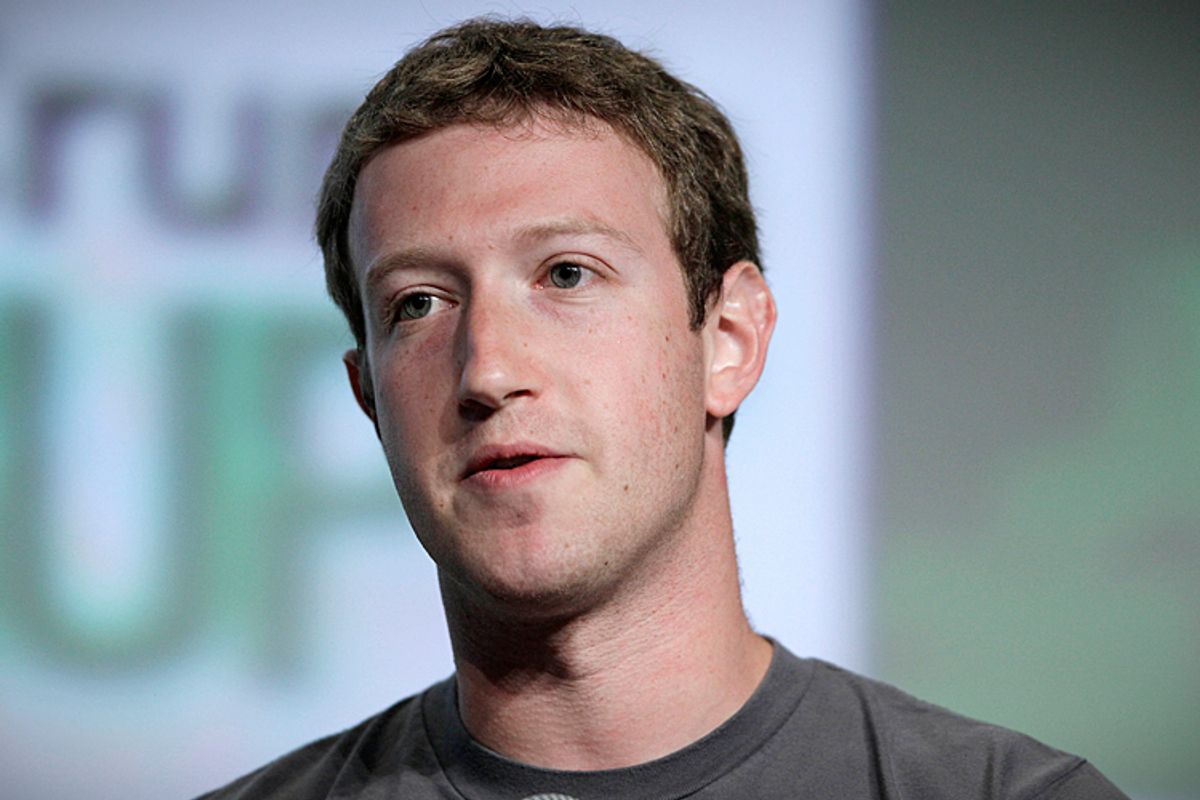Every day has its own Facebook outrage story. Friday's entry: Mashable's discovery that the social media network was offering users the opportunity to send a direct message to Mark Zuckerberg's inbox for the low, low price of $100.
Actually sounds pretty steep, no? Certainly a far cry from December's Facebook announcement that it was testing out a much more inexpensive system that would charge only $1 to make sure your message got through, instead of being relegated to Facebook's mostly hidden "Other" inbox.
So what is it? A buck or a Benjamin? Or do "famous" people simply command higher price points? The Week got Facebook to shed some light:
In a statement, a Facebook spokesperson says, "We are testing some extreme price points to see what works to filter spam." In other words, the fee is an attempt to discourage people from sending annoying messages to people they don't know.
Facebook's explanation might seem reassuring on the surface, but is actually cause for alarm.
Yes, spam would not exist in its present form if marketers were charged for every email they vomited out into the void. So there's no question that Facebook's plans to charge for unsolicited messages to strangers will cut down on the vast majority of spam that Facebook users receive in their inboxes.
But what Facebook wants to figure out is the exact intersection point between how much spam we can bear and what people will pay to send messages to strangers. Where's the sweet spot that marks the borderline between an avalanche of spam that might (gasp!) discourage Facebook users to log in and a new revenue stream for Facebook?
Facebook conducts such envelope-pushing experiments all the time on its millions of users. I once had a Facebook spokeperson tell me confidently that the company would never follow the disastrous path of MySpace, which overloaded itself with ads to the point of forcing of mass user migration elsewhere, because Facebook's constant user testing and monitoring would give the company ample warning whenever it was stuffing too much advertising crap into our news feeds. Facebook's always got its fingers on the volume knob, ready to turn down the advertising flow whenever the golden goose is in danger of premature mortality.
Of course, the worst aspect to Facebook's strategy is that if they execute it perfectly, they can raise the volume of spam and advertising so slowly and smoothly that we never quite notice just how much we're being bludgeoned by marketing messages. In effect, Facebook is training us to be good corporate citizens, using our own observed behavior to perfect their revenue-generating governance.



Shares